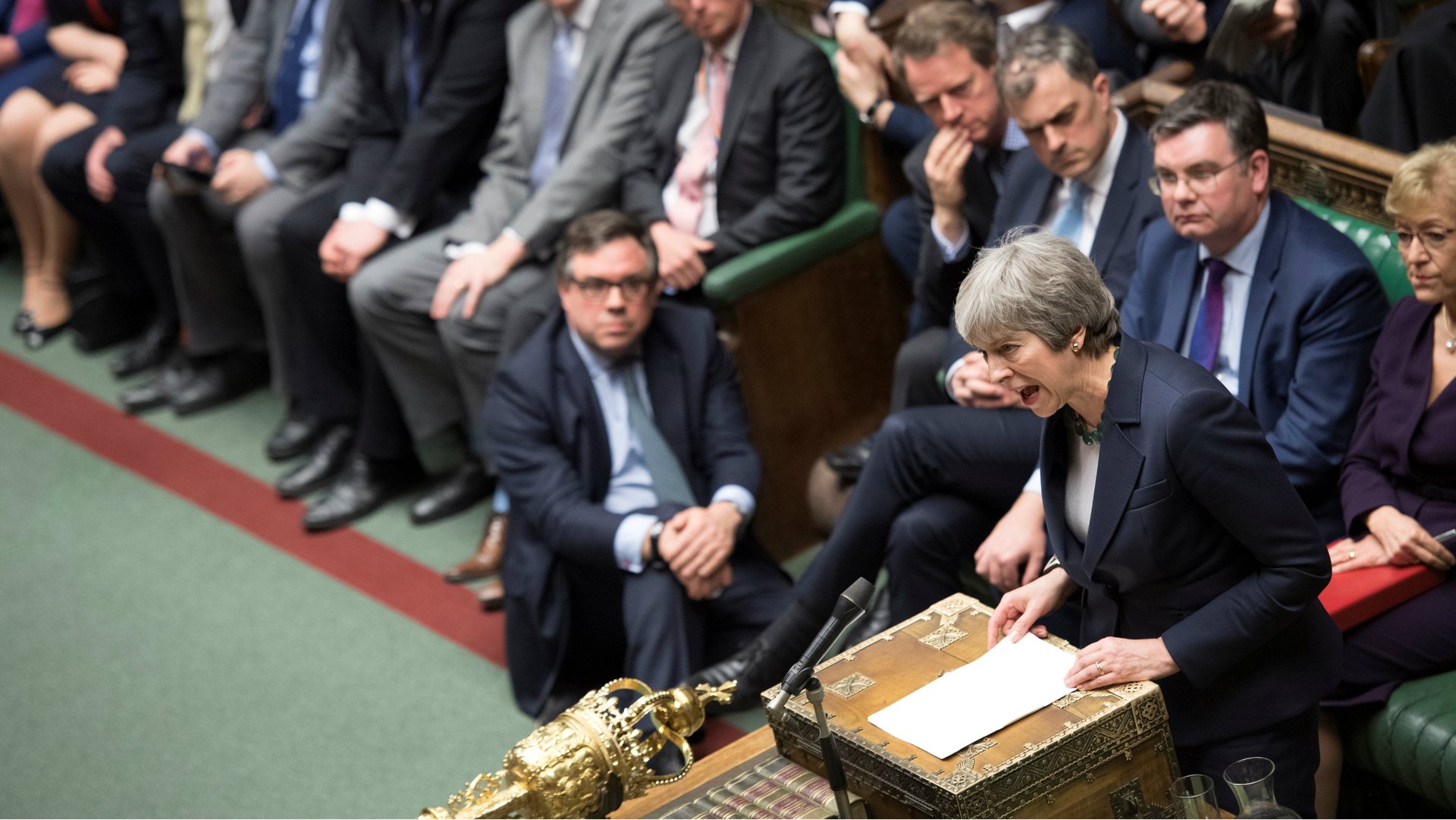Believe it or not, the British pound is one of world’s best-performing major currencies this year
Exactly 1,000 days ago, the UK voted to leave the European Union. Today, less than 10 days to go until its scheduled departure, the terms of Brexit remain dangerously unclear.


Exactly 1,000 days ago, the UK voted to leave the European Union. Today, less than 10 days to go until its scheduled departure, the terms of Brexit remain dangerously unclear.
Remarkably, amid the confusion created by this “political circus,” currency traders had found something to be hopeful about. So far this year, the British pound is among the best-performance major currencies in the world against the US dollar.
While the pound hasn’t recovered from its drop after the Brexit referendum in June 2016, it has gained ground as traders reckon the risk of a no-deal Brexit has receded. Leaving the EU without a deal spelling out transition arrangements is a worst-case scenario that would inflict long-lasting economic suffering on the UK. Last week, members of the British Parliament voted against allowing a no-deal Brexit.
That optimism is beginning to fade. As things stand, the UK is set to leave the EU on March 29, with or without a deal. Prime minister Theresa May is asking the EU for an extension to this deadline, which would have to be unanimously agreed by the other 27 EU members. The pound is down 0.7% against the dollar at the time of writing, after the government confirmed it would ask the EU for a short extension, not a long one.
The EU will only grant an extension if it’s for a clear purpose. May is asking for a short delay—to the end of June—to get her preferred Brexit deal agreed by lawmakers, but MPs have already rejected it twice. A longer delay would require the UK to hold European Parliament elections in May, which the British government wants to avoid.
Volatility in the pound has declined, but remains higher than it was throughout long stretches of the post-referendum period.
The hope among traders is that an extension could lead to a softer version of Brexit or, eventually, no Brexit at all. “The longer the extension, the more positive it would be for the pound initially,” note strategists at Japanese bank MUFG.
Given the risks, many are staying away from the British currency completely, since they are unable to rule out no-deal Brexit. Crispin Odey, founder of Odey Asset Management and a Brexit supporter, told the Financial Times (paywall) he didn’t have any big positions on the pound anymore. Nik Sgouropoulos, a currency strategist at Barclays, also told the British paper that investors weren’t sure how to trade sterling now, since they have already priced in the effects of an extension.
Right now, speculative traders—those who are investors to make a profit based on the price movements of the currency, not the players buying or selling it to hedge their business activities—are still net short on the pound. That means they believe the currency is more likely to fall than rise.
With just nine days until the Brexit deadline, all scenarios are open, from no-deal Brexit right through to no Brexit at all. For the pound to maintain its momentum, there needs to be clearer evidence that a hard Brexit will be avoided. A potential three-month extension just means more uncertainty, and the renewed risk of a no-deal Brexit at the end of June.